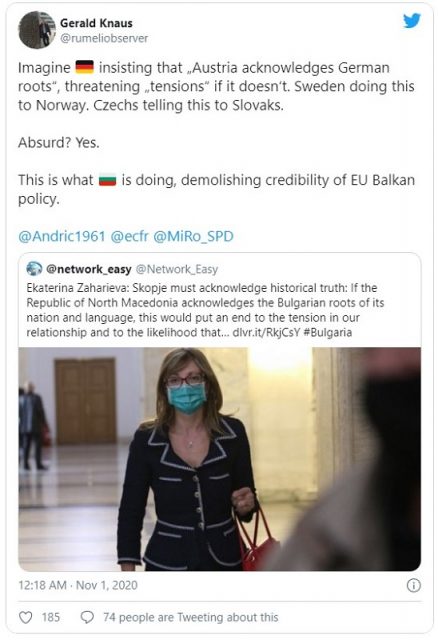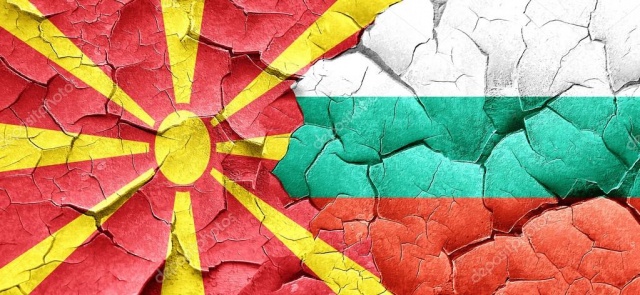While the Macedonian authorities ignores Bulgaria’s threats for a veto, the country is defended by foreigners.
Gerald Knaus, a German political scientist and chairman of the European Stability Initiative, says what is Bulgaria doing is unacceptable and contrary to EU’s policies.
Imagine Germany insisting that „Austria acknowledges German roots“, threatening „tensions“ if it doesn‘t. Sweden doing this to Norway. Czechs telling this to Slovaks. Absurd? Yes. This is what Bulgaria is doing, demolishing credibility of EU Balkan policy, he said.

Bulgaria has repeatedly said that it will veto Macedonia if it does not accept their blackmails to give up its history, language and identity. This position was reiterated once again by the Bulgarian Minister of Defense, Krasimir Karakachanov, saying that no one among them will make concessions and disrespect the decisions of the Parliament.
Up to this point, there are no ideas for concessions from the Bulgarian government, as that would be a national betrayal. No one will take on such a historical weight to be called something like Georgi Dimitrov, ie a national traitor, from the following Bulgarian generations. Skopje should once and for all recognize that the history up to 1944 is a common Bulgarian history, that we have common national heroes, Karakachanov said.
This position of Bulgaria was once again confirmed by the Minister of Foreign Affairs Ekaterina Zaharieva.
In an interview with Reuters she said that Bulgaria is losing patience over what it sees as Macedonia’s reluctance to implement a friendship treaty the two countries signed in 2017.
Our concerns come from the never-ending claims for a Macedonian minority in Bulgaria. The acknowledgment of Bulgarian roots would put an end to this, Zaharieva told Reuters.
If Macedonia agrees, Zaharieva said Sofia was ready to recognize Macedonian as one of the official languages of its neighbor and acknowledge a Macedonian identity.
Politico Brussels earlier reported that Sofia is ready not to block Macedonia’s first intergovernmental conference if a compromise is reached in which Bulgaria will recognize the Macedonian identity and language as one of the official languages, and Macedonia in return should recognize to have Bulgarian roots. Earlier, Sofia submitted a memorandum to the member states of the European Union in which it disputes the existence of the Macedonian language and nation until 1945, writes Alfa TV.





Comments are closed for this post.